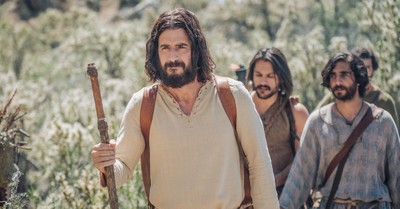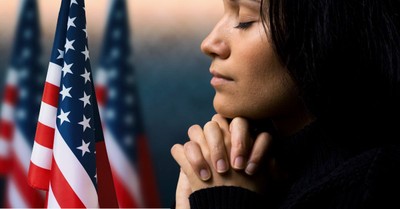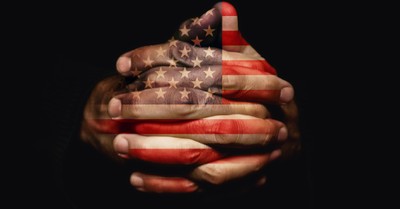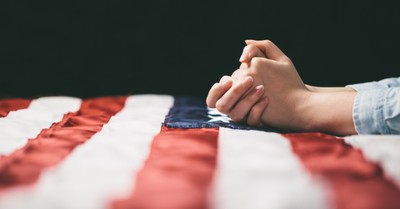Should Pastors Speak to Politics?
-
Paul Dean Dr. Paul J. Dean's Weblog
- Published Nov 04, 2013
We evangelicals have “been dazed and confused for so long it’s not true.” Well, it is true. Here’s a typical comment from a blog:
Seriously, I want to know why any pastor would ever promote any political position from the pulpit? A pastor’s charge is to preach the Word and care for his flock. Whoever is leading our country — or misleading our country as is most often the case — does not change who is ultimately in charge of our lives. Pastors are supposed to plant seeds that make room for the Holy Spirit to change hearts, not attempt to make people change their minds. … I suggest we ignore comments like these and quit extending the platform of pastor’s [who make political statements].
So let’s clear the cobwebs. It’s true that pastors should never bind consciences nor impose their will on others. They don’t make law that God doesn’t. They respect the liberty of conscience each one has before God. At the same time, that does not prevent them from pointing out policy positions of leaders and/or candidates and put them under the microscope of Scripture.
Now I agree it’s a pastor’s charge “to preach the Word and care for his flock. . . . to plant seeds that make room for the Holy Spirit to change hearts.” But where do we get the idea the pastor should “not attempt to make people change their minds?” Isn’t that what a pastor actually should do – attempt to make people change their minds? That’s the very definition of repentance. And yes it’s about changing minds concerning sin and the sole sufficiency of Christ as Savior. But it’s also about renewing minds and increasingly thinking about things the way God does. So yes, I try to persuade people to change their minds about marriage, parenting, sexuality, abortion, global warming, eugenics, genocide, poverty, education, welfare, taxes, and everything else under the sun.
Again I ask from whence comes the notion that pastors shouldn’t seek to change minds about politics? The fact that many pastors are careless in such attempts is doubtless part of the problem. And of course there’s the influence from the boys in Escondido. Yet the primary agent in this deadening of sensibility is the American idea that the individual is supreme. His autonomy is sacrosanct and nobody whether prince or preacher is going to tell him how to think.
Christians have relatively little influence in culture these days and one of the big reasons is this hands-off sentiment. And what is the result but a culture in chaos? It’s not merely that our way of life is disappearing but that goodness and prosperity for all is vanishing with it. But most importantly souls are lost as the gospel is relegated in the minds of most to an irrelevant religious sphere that has nothing to do with real life. When you don’t want the pastor to bring God’s word to bear on political issues you think you want one thing and get something else. “. . . wanted a woman, never bargained for you. Lots of people talk and few of them know, soul of a woman was created below” – soul of a woman called autonomy that is.
Do we really want to say someone like Martin Luther King, Jr. should have kept his political views to himself? Does God not speak to every issue of life? If we think religious views and political views have no point of merger then we don’t understand worldview. Those who divide them in their minds are suffering from a secularly induced schizophrenia and we all know what that means (Jas. 1:8).
Hear the words of George W. Truett, pastor of the First Baptist Church of Dallas, Texas, as he spoke from the steps of the Capitol in Washington, D.C. in 1920:
On and on was the struggle waged by our Baptist fathers for religious liberty in Virginia, in the Carolinas, in Georgia, in Rhode Island and Massachusetts and Connecticut, and elsewhere, with one unyielding contention for unrestricted religious liberty for all men, and with never one wavering note. They dared to be odd, to stand alone, to refuse to conform, though it cost them suffering and even life itself. They dared to defy traditions and customs, and deliberately chose the day of non-conformity, even though in many a case it meant a cross. They pleaded and suffered, they offered their protests and remonstrances and memorials, and, thank God, mighty statesmen were won to their contention. Washington and Jefferson and Madison and Patrick Henry, and many others, until at last it was written into our country’s Constitution that church and state must in this land be forever separate and free, that neither must ever trespass upon the distinctive functions of the other. It was preeminently a Baptist achievement.
Sounds political to me; but more than that, it sounds crystal.
Follow me on Twitter: @pauldeanjr


















